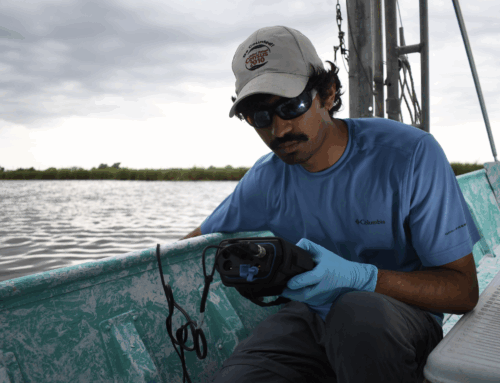Environmental Groups Challenged in Fighting Trump’s Alaska Moves
October 29, 2025
The Trump administration’s opaque decisions during the government shutdown to permit oil and gas leasing and road building in Alaska make it hard to determine how those actions address environmental harm and can be challenged in court, environmental lawyers say.
“When you call or email an agency looking for documents underlying the decision the Secretary announced, you get an out of office message,” said Erik Grafe, deputy managing attorney for Earthjustice, a nonprofit law firm that often sues to challenge federal decisions. “No one is home.”
Interior Secretary Doug Burgum on Oct. 23 announced the agency’s decision to open the coastal plain of Alaska’s Arctic National Wildlife Refuge (ANWR) to oil and gas leasing, issue three federal permits to build the 211-mile Ambler Road across federal lands to planned copper and critical minerals mines, and approve a land exchange for a road within a federal wilderness area in the Izembek National Wildlife Refuge.
Environmental groups have challenged each of those projects in court previously, but they say the information about how the Trump administration arrived at its final approvals of those projects is too scarce to determine next steps.
The Interior Department, which has furloughed thousands of employees during the shutdown but continues to conduct some business, responded to emailed questions for comment only with links to its decision documents. The Alaska Industrial Development and Export Authority, the state’s proponent for ANWR leasing and Ambler Road, didn’t respond to requests for comment.
The Bureau of Land Management on Oct. 23 issued a new record of decision and determination of National Environmental Policy Act adequacy on the ANWR leasing. Interior and the Army Corps of Engineers issued the Ambler Road permits following President Donald Trump’s Oct. 6 executive order directing them to do so. Interior also released a 179-page decision document on the Izembek land exchange.
“By reopening the Coastal Plain and advancing key infrastructure, we are strengthening energy independence, creating jobs and supporting Alaska’s communities while driving economic growth across the state,” Burgum said in a statement.
Details supporting Interior’s decisions remain scarce, said Susan Bostrom, senior staff attorney at Trustees for Alaska, a nonprofit law firm representing environmental groups.
“We still haven’t seen all the materials Interior and other agencies and the Corps have relied on to explain their decisions,” she said.
“What we’ve seen with all these decisions is little to no effort to address, let alone adopt, any measures to ensure that clean water, healthy fish and wildlife, and public lands are protected,” she said, adding that groups will continue to fight the projects “every step of the way.”
The fight over the projects extends across several administrations, so the environmental groups are likely to continue to pursue challenges once they develop a strategy.
The US District Court for the District of Alaska in 2022 granted the Biden administration’s motion for voluntary remand of the first Trump administration’s decision to permit Ambler Road, but the court maintained jurisdiction in the case. The same court ruled for environmental groups in their Izembek suit, but the US Court of Appeals for the Ninth Circuit tossed it on appeal after the Biden administration withdrew its plan for the land exchange.
The court this year ruled in favor of an Alaska state agency that challenged the Biden administration’s cancellation of ANWR oil leases issued to the agency by the first Trump administration.
Conflicts of interest between the Trump administration and a company benefiting from Ambler Road could be grounds for future legal challenges, said John Leshy, a University of California College of the Law professor who served as Interior’s solicitor in the Clinton administration.
The US said Oct. 7 that it would take a 10% stake in Canadian minerals explorer Trilogy Metals Inc., co-owner of Ambler Metals, the developer of the mines that Ambler Road would be built to access. Ambler Metals declined to comment.
The conflict “might furnish ground for legal challenges beyond the usual environmental/regulatory ones,” Leshy said in an email.
Siobhan McIntyre, another Trustees attorney, said the Izembek swap could be challenged because it was done without consent from Congress.
“An Interior secretary cannot legally trade away Izembek lands for a road through federally protected Wilderness without congressional approval,” McIntyre said.
“Throwing out the rule book for Izembek sets the stage for an array of possible land exchanges in federally protected lands across Alaska.”
Search
RECENT PRESS RELEASES
Related Post



